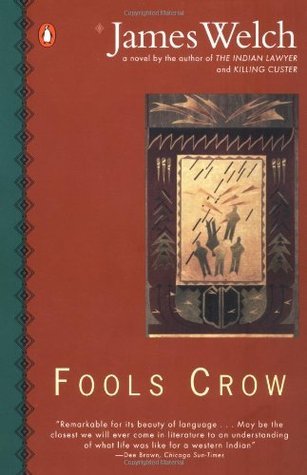TL;DR
In 'Fools Crow,' James Welch narrates the story of a young Blackfeet Indian navigating the cultural upheaval following the Civil War, ultimately leading to the tragic Marias Massacre. This poignant novel explores themes of identity, tradition, and the impact of white encroachment on Native American life.
What is Fools Crow about
'Fools Crow' tells the story of White Man's Dog, a Blackfeet Indian facing the threat of white encroachment on his people's traditional way of life in Montana post-Civil War. As he grapples with the complexities of manhood and identity, he joins a raid against the Crow, an action that leads to his renaming as Fools Crow. Set against the backdrop of historic events, including the Marias Massacre, the novel poignantly explores the struggles of Indigenous peoples during a time of profound change, reflecting on themes of resilience, loss, and the search for personal and cultural identity.
Fools Crow 5 Key Takeaways
Introduction of White Man's Dog
The novel begins with White Man's Dog, a young Blackfeet Indian, who is depicted as weak and uncertain. His character sets the stage for a journey of self-discovery amidst the challenges faced by his people.
The raid against the Crow tribe
In a pivotal moment, White Man's Dog and his friend Fast Horse participate in a night-time raid against the Crow, marking a significant step in his transition from boyhood to manhood.
Renaming to Fools Crow
After a confrontation during the raid, White Man's Dog earns the name Fools Crow, a title he feels does not reflect his true experience, showcasing the themes of identity and perception.
Cultural conflict with white society
As white settlers encroach upon their land, the Lone Eaters face a cultural crisis, forcing them to choose between resistance and assimilation, which highlights the struggle of maintaining cultural identity.
The Marias Massacre
The climax of the story culminates in the Marias Massacre of 1870, where the U.S. Cavalry mistakenly kills a peaceful band of Blackfeet, serving as a tragic commentary on the consequences of misunderstanding and conflict.
Top Fools Crow Quotes
- 'In the twilight of their way of life, the Blackfeet faced choices that would shape their future for generations to come.'
- 'I was not pretending; I had been knocked to the ground, and yet I bore a name that felt like a lie.'
Who should read Fools Crow?
'Fools Crow' is ideal for readers interested in Native American history, culture, and literature. Those who seek a deeper understanding of the complexities surrounding Indigenous identity and the historical impacts of colonization will find this book both enlightening and thought-provoking.
Fools Crow Best Reviews
- 'Fools Crow' is an essential work in Native American literature, blending historical realities with fiction to illuminate the nuanced experiences of Indigenous peoples.' - Publishers Weekly
- 'Welch's narrative offers a profound exploration of identity, community, and the impact of violence on a culture.' - The New York Times Book Review
People also liked these summaries
Fools Crow FAQs
Is 'Fools Crow' based on true events?
'Fools Crow' is a fictional narrative that draws upon historical accounts and oral traditions from Blackfeet culture, blending fact with storytelling to provide a rich depiction of the era.
What inspired James Welch to write 'Fools Crow'?
Welch was inspired by tales from his great-grandmother about the tribal life of the Blackfeet, which sparked his interest in exploring their history and experiences in a fictional context.
